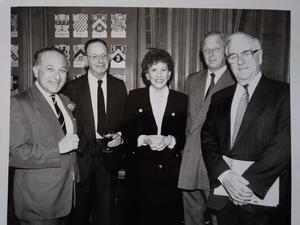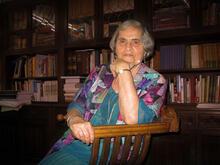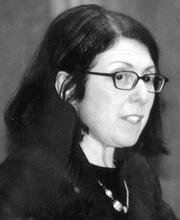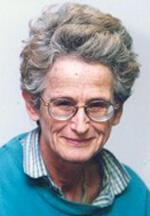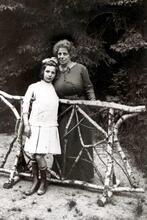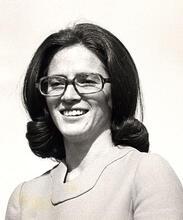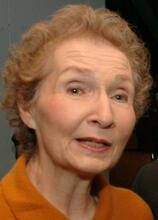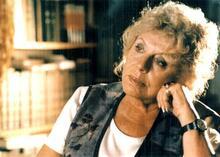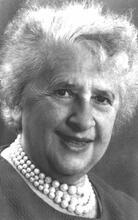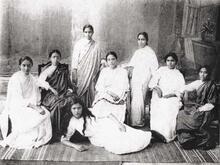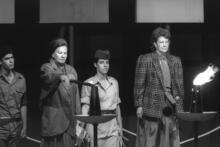Hadassa Ben-Itto
Hadassa Ben-Itto, jurist and best-selling author, was appointed a judge in the Tel Aviv Magistrate’s Court in 1960 after running a private practice; in 1970, she moved to the city’s District Court. From 1971 to 1974 she taught criminal law at Bar Ilan University. In 1977 the Ministry of Justice appointed Ben-Itto to head an official commission on prostitution; the commission’s recommendations were so revolutionary that they aroused enormous controversy. From 1988 to 2004, she served as president of the International Association of Jewish Lawyers and Jurists. It was during that time that she wrote her book, The Lie that Will Not Die: One Hundred Years of the Protocols of the Elders of Zion (Hebrew, 1998). She passed away on April 18, 2018, in Jerusalem.
Early Life and Education
Born in Brzezin, Poland, on May 16, 1926, Hadassa Ben-Itto was the daughter of David Lipmanowicz (1904–1994), a building contractor, and Dvora (née Broder, 1906–1988), a homemaker, both of whom had also been born in Brzezin. Her father received a Jewish education at Lit. "room." Old-style Jewish elementary school.heder and yeshiva, while her mother had attended elementary school. They married in 1924 and immigrated to Palestine in 1935, where a second daughter, Nira (Kfir), was born in 1937.
Ben-Itto completed her schooling at the (religious) Ma’aleh High School in Jerusalem, served as an officer during the War of Independence (1948), and studied history, psychology, and English literature at the Hebrew University of Jerusalem. She received her law degree at Tel Aviv University in 1954 and attended post-graduate courses in law and criminology at Northwestern University, Chicago, and the University of Denver. She was admitted to the Israel Bar in 1955.
Career
From 1955 to 1960, Ben-Itto was in private practice, specializing in criminal law. She was then appointed a judge in the Tel Aviv Magistrate’s Court and ten years later, in 1970, moved to the city’s District Court. From 1971 to 1974 Ben-Itto taught criminal law at Bar Ilan University’s law school. In July 1980, while she was conducting a bank robbery trial, she survived a bomb attack on her home. There was a suspicion that the attack was related to the trial. In that year she was appointed acting judge in the Supreme Court and in 1988 became deputy president of the District Court in Tel Aviv. She took early retirement from this position in 1991, and subsequently frequently provided expert opinions in arbitration cases.
In 1977 the Ministry of Justice appointed Ben-Itto to head an official commission on prostitution. The commission recognized that prostitution is an undesirable activity for society and for the women involved but considered that the most effective way to combat the phenomenon was through prevention, by helping the vulnerable girls and women who might find themselves forced or falling into prostitution. Hence, the commission’s major recommendations were not to prosecute prostitutes themselves but to allow them to engage in prostitution without undue interference, unless some illegal act was involved; at the same time, health regulation was to be introduced, as well as an increase in the severity of sanctions and sentences imposed on traffickers and pimps. However, these recommendations, based both on recognition of the existence of prostitution and on the need to regulate it for legal and health reasons, were so revolutionary that they aroused enormous controversy. Although they formed the basis of a number of legislative proposals, none of these has so far resulted in actual legislation.
From 1988 to 2004, Ben-Itto served as president of the International Association of Jewish Lawyers and Jurists, of which she was then elected Honorary President. During her term of office as president, the Association was officially accredited as an international NGO at both the United Nations and the European Community (Commission), with the right to representation at meetings of both these bodies. Among the aims of the Association is the encouragement of legislation prohibiting expressions of antisemitism and Holocaust denial, as part of the fight against racism in democratic countries. Ben-Itto made a special contribution to this struggle as the author of a best-seller, The Lie that Will Not Die: One Hundred Years of the Protocols of the Elders of Zion (Hebrew, 1998), which was translated into English in 2005. In 1991 she began the research and composition of the book that took six years to complete. It has since been translated into eight languages: German (three editions); English (two editions); Dutch, Hungarian, Romanian, Russian, Bulgarian and Spanish.
Following the publication of her book, Ben-Itto wrote frequently about the relationship between antisemitism and political upheavals in the Middle East, such as the 2006 Lebanon War and the First Arab Spring.
Ben-Itto actively participated in discussions on constitutional drafting conducted by the Knesset’s Constitution, Law and Justice Committee. In this she was joined by Jewish jurists from all over the world, since the entire topic has wide-ranging implications arising from issues such as separation of state and religion, citizenship and the question of “Who is a Jew.”
From 1998 to 2002 she was the only woman to serve as one of the seventeen international arbitrators at the Claims Resolution Tribunal (CRT) in Zurich, which adjudicated the claims against Swiss banks concerning dormant accounts. She frequently served as an arbitrator in commercial disputes.
Ben-Itto was a member of the board of Hayyim, in aid of child cancer patients. In 2003 she received an award from the Israel Bar Association for her special contribution to the community, and in 1999 she was the recipient of the annual Zeltner Prize, named after a former president of the Tel Aviv District Court.
In 1950, she married Gershon Ben-Itto (b. 1920), a businessman. A daughter, Orly (Asody-Bergmann), was born in 1957. The couple divorced in 1982.
Hadassah Ben-Itto passed away on April 18, 2018, in Jerusalem.

